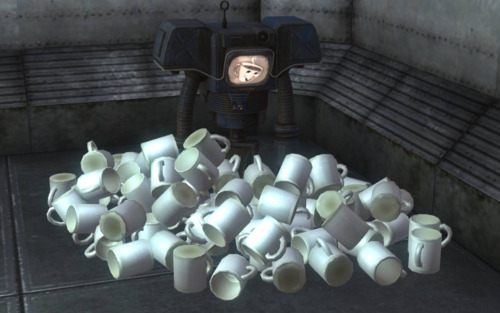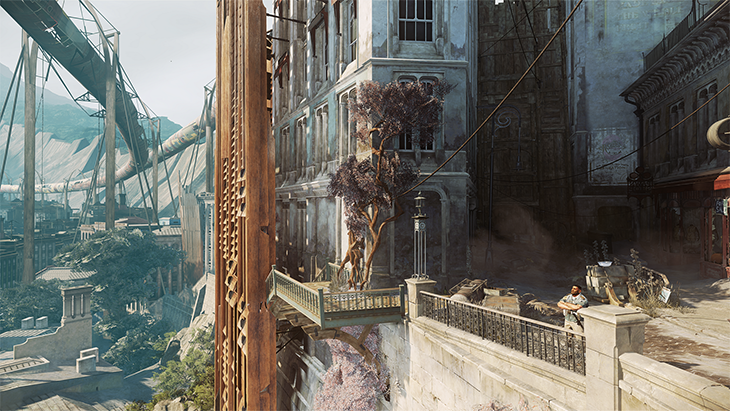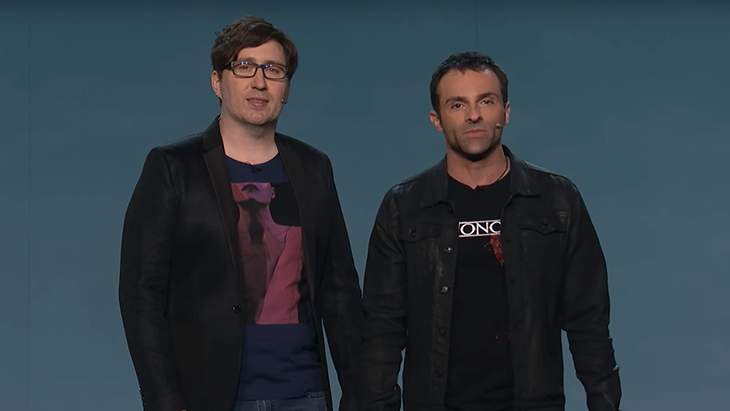Dishonored 2, Prey and the Arkane Way
One game is set in a fantastical alt-Victorian world. The other takes place on a space station in a near-future that’s grounded in reality. Dishonored 2 and Prey are clearly very different games – yet they share one thing in common. They are both developed by Arkane Studios.
Make that
more than one thing. Ever since Arkane was founded in 1999 in Lyon, France, the studio has specialized in making a certain type of game that is, well… uniquely Arkane. These games defy easy genre descriptors. They’re not shooters, but you can shoot stuff. They’re not pure action games, but you can certainly get your fill of bloody, brutal combat. They’re not RPGs, but you have the ability to make choices with real consequences. And they’re not purely stealth games, but there are times when you can finish a mission without ever being spotted.
“At Arkane, we always apply the same values to the games we make,” says studio President and Co-Creative Director Rafael Colantonio. “Dishonored and Prey share a lot of those values.”
For Colantonio – who led the original Dishonored with Co-Creative Director Harvey Smith – that means a game “where simulation is very important, and where the choices of the player are very important.” Or, as Smith adds, “Arkane is dedicated to very immersive games that engage in first-person combat and first-person stealth. We allow the player to recombine powers and moves in different ways that we couldn’t even predict. We care about empowering the player. You can play our games very creatively.”
After the original Dishonored released in 2012, Colantonio moved his focus to directing Prey in Arkane’s newer studio located in Austin, Texas. Meanwhile, Smith – an industry veteran who joined Arkane in 2008 to work with Colantonio on Dishonored – moved to Lyon to direct Dishonored 2. While they now live in different countries, the two of them continue to collaborate on a daily basis, testing each other’s games, sharing expertise and more. “Harvey and I are constantly talking,” Colantonio smiles. “Either we’re chatting on Skype, or we’re texting each other.”
A Sense of Place
For Smith, Arkane has become more than just a studio. “From the time 17 years ago when Arkane was just Rafael Colantonio and four guys in an office in France, with a network cable between their computers for transfers, a lot has happened – a long, rich history culminating most recently in the Dishonored series,” Smith says. “I’ve been with the company for eight years, which blows my mind. It’s longer than I’ve been with any other company. It’s amazing, it feels like home.”
When it comes to Arkane’s games, that feeling of “being at home” is no accident. “We are very much into creating a deep setting where there are layers of history,” Smith says. “We understand the architecture of the place, and the waves of settlers that came in, and how the foods have changed since then. It’s the kind of company where we just really care about creating worlds.”
While that makes sense for a lore-rich, fantastical setting like Dishonored’s Empire of the Isles, how does this world-building philosophy translate to a sci-fi game like Prey? Set on board the space station Talos I, Prey offers a vision of the near future that’s built upon a foundation of reality. “But it’s not the world exactly as we know it,” Colantonio says. “It’s another version of 2032. In our world Kennedy survived his assassination. We’re not very overt about it. We hint at it. This allowed us to take all the filters the new timeline would create, and build our world through those filters.”
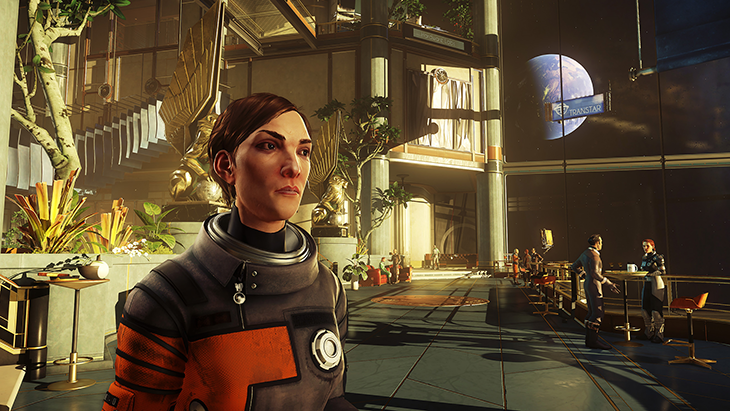
Which is why astute observers will see a mix of eras and styles reflected in the design of Talos I: Everything on board is rooted in a carefully thought-out alt-history timeline, with all details accounted for. The space station even includes some very lavish elements because, as Colantonio explains, “They built it in a way that would be attractive to the best scientists in the world. There’s even an artificial park with some engineered trees.”
Self Discovery
Within these Arkane worlds, the teams are also passionate about allowing players to build their own identity. It’s why Dishonored 2 offers a choice of two playable characters – Empress Emily Kaldwin or Royal Protector Corvo Attano, each of whom has
unique powers and different perspectiveson the world around them. And in Prey, players can choose whether Morgan Yu is male or female – but that’s just for starters. One of the major themes of Prey is
identity: Along with killing aliens, players embark on a journey of self-discovery. This is even reflected in the gameplay. “We track what players do all along so there can be consequences to their choices,” Colantonio says. “We give players a lot of tools. It’s all simulated. Players can explore those tools in the environment and against the different AIs, who are themselves simulated – they’re not on a set path but are organically moving around based on what they sense. There’s a full ecology with the aliens. All of this combined really provides for experiences that are unique to every player.”
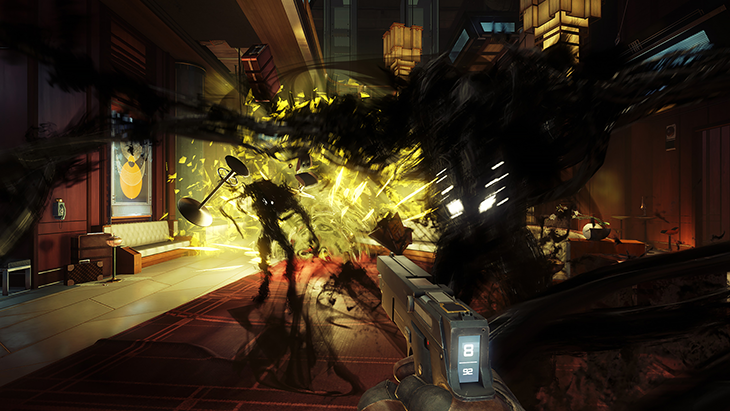
Of course, Prey and Dishonored 2 are very different games as well. Dishonored is mission-based, with richly detailed, signature levels that you explore and complete in a myriad of ways. Prey, on the other hand, is built around a massive contiguous space, with areas you can revisit. Dishonored places a greater focus on stealth (with the option to play as chaotically as you choose); in Prey, stealth exists, but it’s not the central pillar of the gameplay. And while both games include a wealth of customization options, Prey places an even greater emphasis on RPG-like elements.
And yet they both share similarities that make them uniquely Arkane. “If you like Arkane games – those games that blend narrative and simulation, some choices and a lot of player exploration – Prey will be a game for you,” Colantonio says.
For Smith, Dishonored 2 represents eight years working at Arkane on Dishonored games. “I have a great passion for it,” he says. “The whole team does. Down to every object, the watermarks on the walls, the history of the place you go to, all the quirky characters. We just want our very vocal fans to know that we really are inspired by their passion and their enthusiasm. And for everybody who hasn’t played the first game, we think this is going to be a great entry into the Dishonored world, and Arkane games in general.”










![The Year of Incline [2014] Codex 2014](/forums/smiles/campaign_tags/campaign_incline2014.png)



















